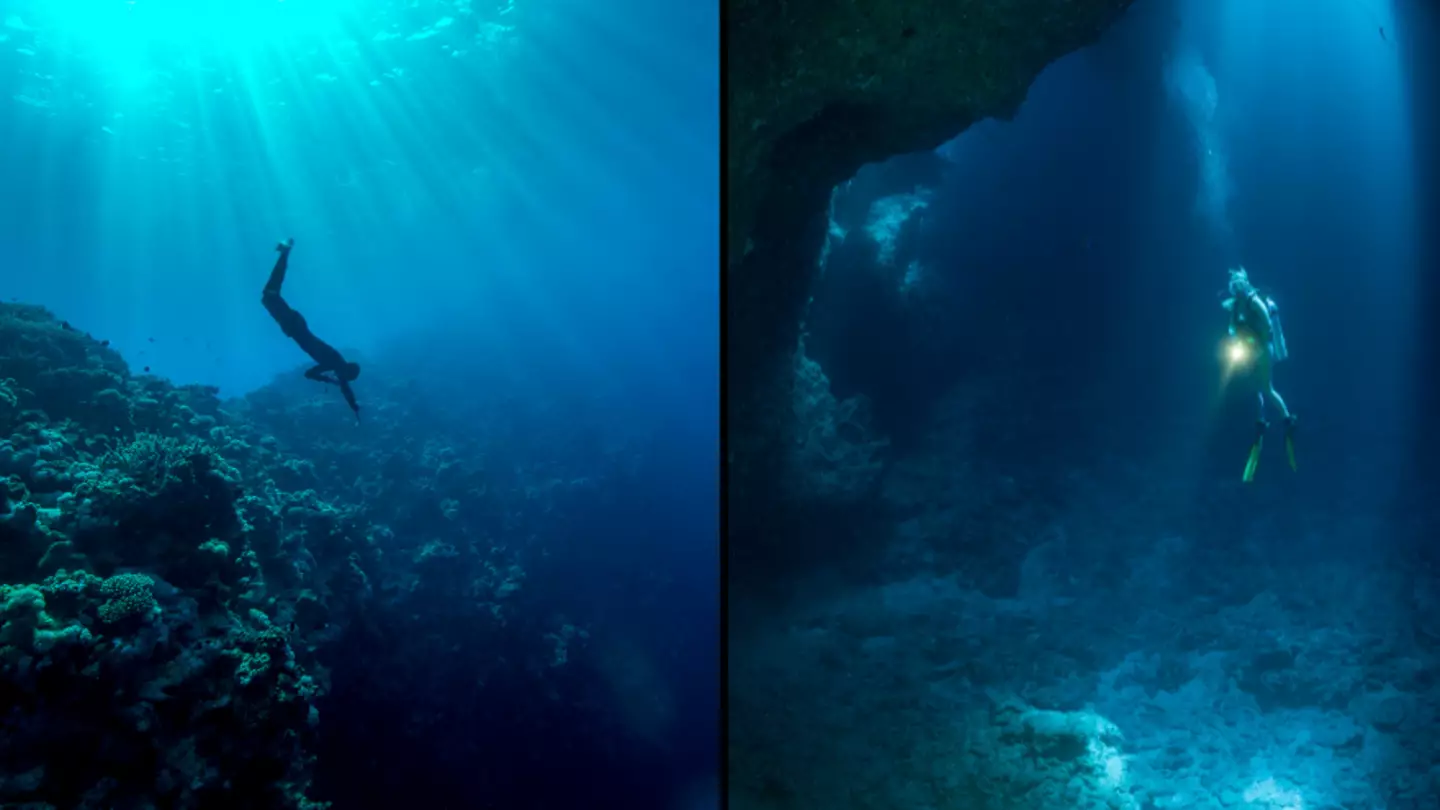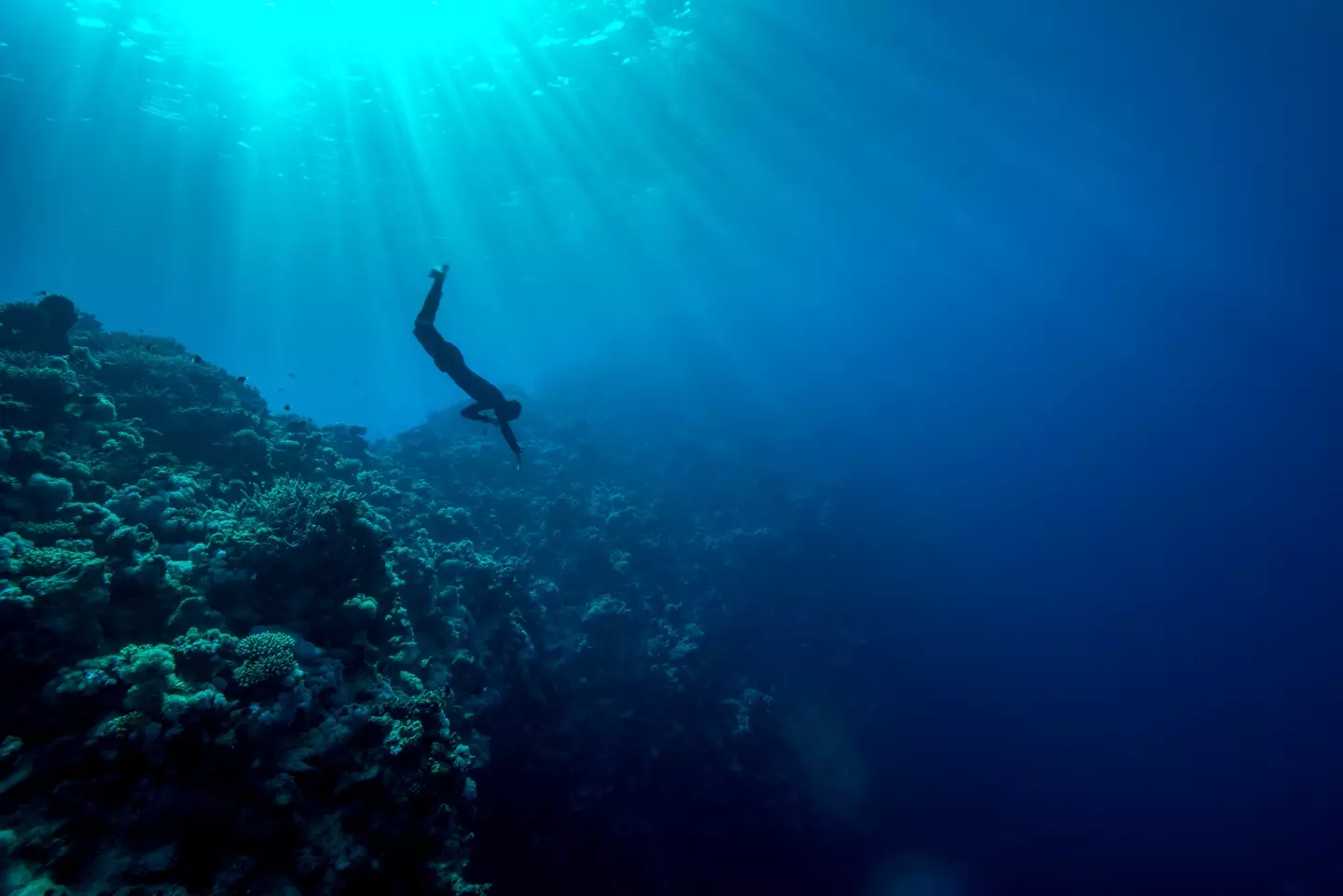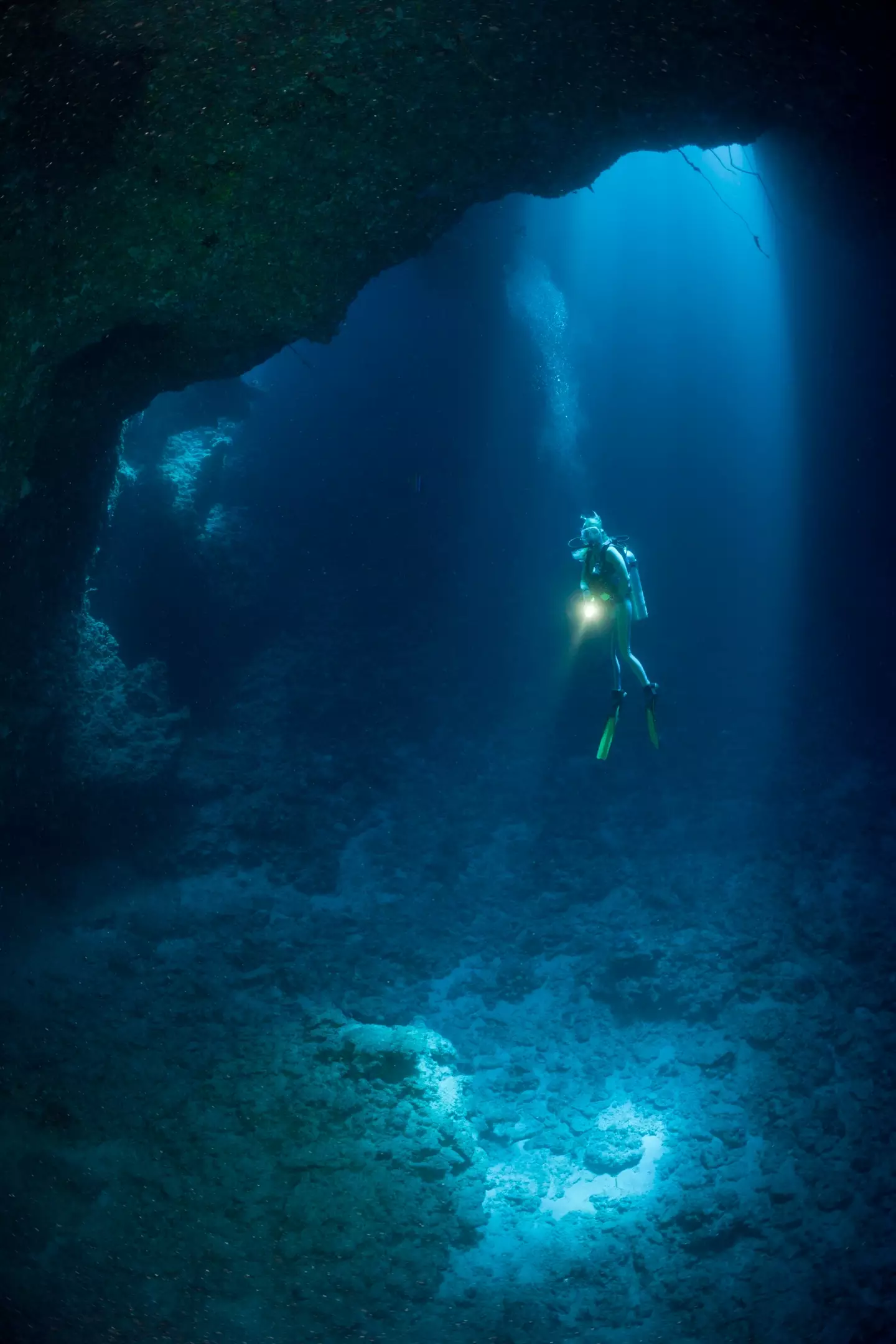
Off the coast of Egypt in the Red Sea, there's a famous diving spot known as the Blue Hole, which has become incredibly popular and yet is also one of the most fatal diving spots in the world.
The Blue Hole is over 100 metres deep and is sometimes referred to as the 'diver's cemetery' because so many people have died down there - with the more pessimistic estimates suggesting around 200 have lost their lives to the underwater sinkhole.
Around six meters below the surface of the sea is a shallow opening known as 'the saddle', but what many people dive into the Blue Hole for is 'the arch'.
Advert
Located about 56 metres below the water's surface, it's a 26-meter-long tunnel from the Blue Hole out to the Red Sea itself.
Sadly, this popular part of the attraction is also what tends to get divers killed as they swim down into the Blue Hole and begin to suffer from something called nitrogen narcosis, which can begin to affect a diver going deeper than 30 metres.

Nitrogen narcosis can impair a person's mental and physical capabilities, and when you're dozens of metres underwater and having to be careful with every movement you make, that can be a devastating issue.
Advert
The deeper you go, the more it affects a diver. It has been compared to being drunk and can dangerously warp their view of a situation, with some divers heading down further in the belief that they were swimming for the surface.
The pressure from being down so deep makes the gases we breathe denser in the body, which interferes with a person's thoughts and their nervous system too - so messages travelling around the body begin to struggle.
Less able to manoeuvre in the water while also not thinking properly, a diver can make poor decisions and at the same time the body's temperature control is impaired, making a person feel warmer than they actually are.

Advert
Once they get below a certain depth there is no way for a diver to avoid nitrogen narcosis, the only real safeguard is to learn how to spot the signs so you can be aware it's happening to you.
Below 57 metres is where something called 'oxygen toxicity' kicks in, which in the case of the Blue Hole is a depth anyone wanting to tackle 'the arch' would have to reach.
This can cause a person to get tunnel vision, feel a tingling and in some cases suffer from seizures or fainting which can result in them drowning underwater.
One of the most notorious fatalities at the Blue Hole was diving instructor Yuri Lipski, who went into the popular diving spot in 2000 and never surfaced again.
Advert
His helmet camera was recovered, which shed light on what had happened to him, and the disturbing footage suggested that he died after getting down to about 91 metres, with nitrogen narcosis kicking in and the diving instructor sinking to the bottom of the Blue Hole.
Topics: World News, Weird, Science, Health